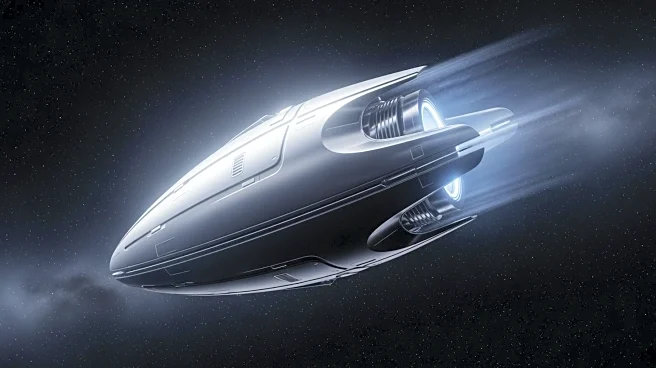What's Happening?
The interstellar object 3I/ATLAS, the third known visitor from beyond our solar system, is exhibiting non-gravitational acceleration, sparking debates about its nature. Detected earlier this year, 3I/ATLAS is on a hyperbolic trajectory, indicating an
origin outside our solar system. Its movement cannot be fully explained by gravity, similar to the first interstellar object, 'Oumuamua. Harvard astrophysicist Avi Loeb suggests that while the object is likely natural, it could also be alien technology. The object lacks a visible cometary tail, yet it accelerates as it approaches the inner solar system, raising questions about its composition and origin.
Why It's Important?
The discovery of 3I/ATLAS's unusual acceleration challenges existing scientific understanding and highlights the need for open-mindedness in scientific inquiry. Investigating such anomalies could lead to significant technological and economic advancements if the object is of extraterrestrial origin. Loeb emphasizes the importance of studying interstellar objects for both scientific curiosity and potential security implications. Understanding these objects could protect Earth from extraterrestrial threats or unlock new technologies.
What's Next?
Loeb advocates for increased research into interstellar objects, proposing an alert system of telescopes and interceptors to study future visitors. The Galileo Project at Harvard is expanding to analyze data on 3I/ATLAS and other interstellar objects expected to be detected by the Rubin Observatory in Chile. This research could provide insights into the nature of these objects and their potential impact on Earth.
Beyond the Headlines
The study of 3I/ATLAS underscores the importance of maintaining scientific curiosity and avoiding complacency. Loeb's call for open-mindedness in exploring unconventional possibilities reflects a broader philosophical stance on scientific discovery. The potential discovery of alien technology could have profound implications for humanity, challenging existing paradigms and opening new avenues for exploration.















